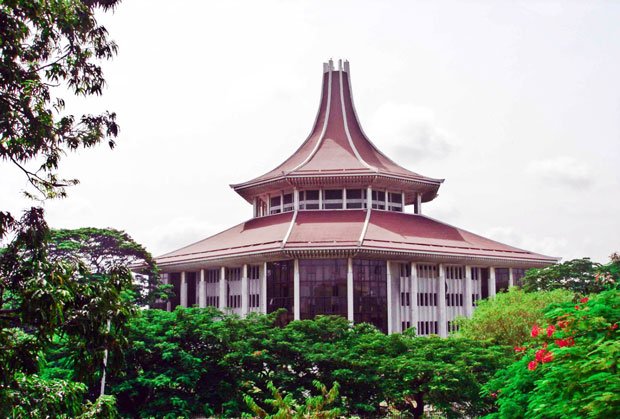
News Today: Supreme Court ruling on Fundamental Rights petition highlights constitutional processes and impacts judicial appointments.
In a significant legal development, the Supreme Court dismissed a Fundamental Rights petition filed by attorney Sarith Maheeputhra Pathirathne. The petition sought to compel the Constitutional Council to approve the recommendation made by former President Ranil Wickremesinghe to appoint the incumbent President of the Court of Appeal, Nissanka Bandula Karunaratne, as a Supreme Court Judge.
A three-judge bench comprising Justices Preethi Padman Surasena, Achala Wengappuli, and Mahinda Samayawardena concluded that no respondent, including Constitutional Council members, infringed the petitioner’s Fundamental Rights as guaranteed by the Constitution.
The petitioner was ordered to pay significant costs, amounting to Rs. 2 million. This includes Rs. 500,000 each to three non-MP members of the Constitutional Council—Dr. Prathap Ramanujam, Dr. Dilkushi Anula Wijesundere, and Prof. Dinesha Samararatne—and an additional Rs. 500,000 to the State, to be deposited in the Supreme Court Registry within two months.
The court held that the petitioner’s challenge to the Constitutional Council’s majority decision did not serve the public interest and contradicted constitutional provisions. Notably, on April 30, 2024, the Supreme Court issued an interim order preventing the President from nominating judges to fill vacancies in the Supreme Court other than the Chief Justice position. With this judgment, the legal barrier is now lifted, enabling the Constitutional Council to proceed with Supreme Court judge appointments.
This judgment underscores the judiciary’s stance on public interest litigation and the importance of adhering to constitutional processes.




Leave A Comment